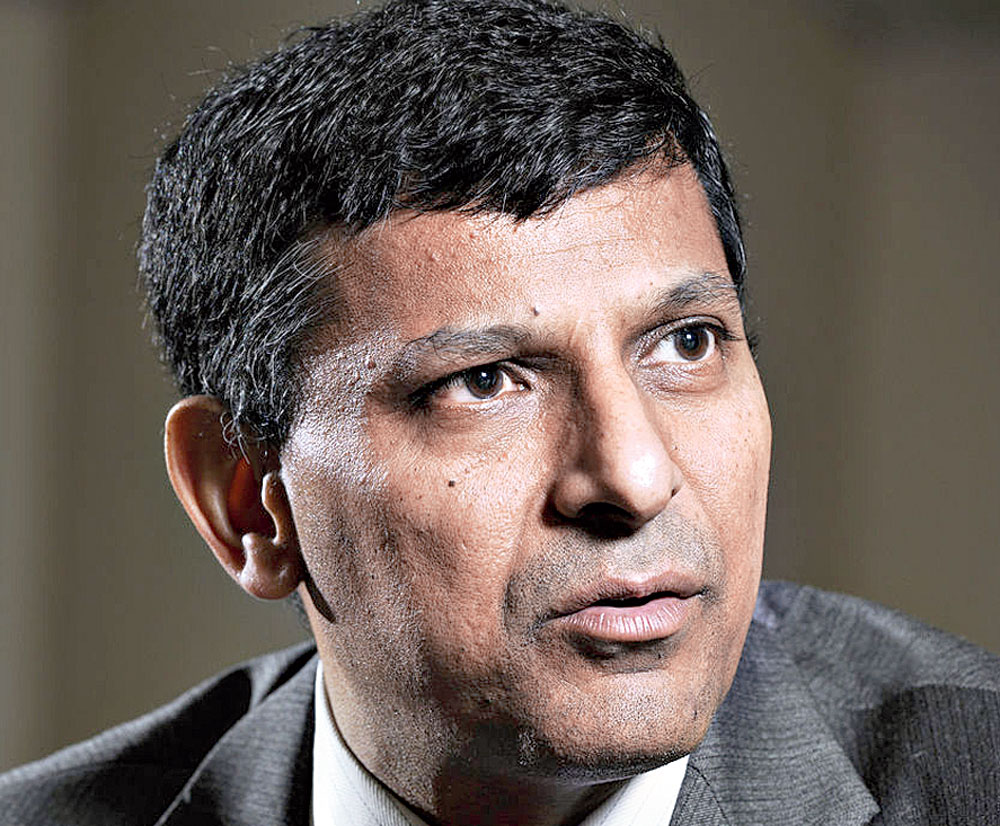The clamour for bold economic reforms has just got louder at a time when a stream of dismal data points is forcing the Narendra Modi government to confront the stark reality of a slowdown.
On Monday, former Reserve Bank of India governor Raghuram Rajan said the slowdown had become “very worrisome” and the government needed to work on a “new set of reforms to energise the private sector to invest”.
On the same day, Shaktikanta Das, the current RBI chief, told a banking conclave that “I am not saying we maintain a Panglossian countenance and smile away every difficulty”, adding that there were several opportunities amid challenges.
The reference was to the fictional character in Voltaire’s satire Candide — Dr Pangloss — characterised as a misguided optimist who chooses to remain upbeat even when he experiences great suffering.
India Inc has been warning the Centre for some time that it hasn’t done enough to get the economy out of a deep rut.
“We need a fresh set of reforms which should be shaped by our view on what we want India to be,” Rajan told CNBC TV18. “One-off programmes here and there don’t amount to a comprehensive reform agenda for the economy.”
The government, which went into separate huddles with a variety of stakeholders in the past week, continued to waffle. Finance minister Nirmala Sitharaman said the corporate tax rate would be cut to 25 per cent for companies with a turnover of Rs 400 crore — iterating a promise she had made in her lacklustre budget speech in July — but again failed to set a date for its implementation.
A task force established by the government in November 2017 has submitted its report on the formulation of a direct tax code that seeks to overhaul the country’s taxation system, but only sketchy details of its recommendations trickled out during the day.Rajan told the TV channel: “What we really need is an understanding of how we are going to propel this country by the two or three percentage points greater growth that it needs. We must fix the immediate problems in the power sector and the non-banking financial sector. These need to be done yesterday, not in the next six months; it is very important that those be tackled immediately.”
Rajan was clear that a stimulus package — which the industry is pressing the government to cobble together —isn’t going to be “useful in the longer term, especially given the very tight fiscal situation that we have”.
“We instead need bold reforms, well thought out, not jumping off the cliff… in a variety of areas which energise the Indian people, energise the Indian markets and energise Indian business,” the former RBI governor said.
Rajan, who was the governor of the central bank during one of the crucial periods when the economy was rocked by a currency crisis in 2013, said the government needs to consider former chief economic adviser Arvind Subramanian’s comment that the country had been overestimating its growth rate by 2.5 per cent between 2011-12 and 2016-17.
He added that the government needed to take a fresh look at the way the GDP was being calculated in India, echoing the deep scepticism expressed by several economists about the figures put out by the Central Statistics Office.
In May, the CSO had estimated GDP growth at 5.8 per cent in the fourth quarter of 2018-19 (January-March) and the growth in the full year at 6.8 per cent — the slowest pace since 2014-15.
Earlier this month, the RBI cut its growth forecast for the current year to 6.9 per cent from the earlier 7 per cent. The CSO will come out with the GDP figures for the first quarter (April-June) on August 30.
In his address to the annual banking conclave organised by the Ficci and the Indian Bankers’ Association, RBI governor Das said that “growth is the matter of the highest priority” but tried to dispel the mood of pessimism that has gripped the markets and corporate boardrooms.
“We do realise that there are challenges; there are difficulties coming from external sources, and domestic sources. But I think one has to look at the opportunities; one has to maintain a positive sentiment,” he said. “Look at the opportunities and capitalise on them because the mood of gloom and doom is not going to help anyone.”
Das added: “I am not saying we maintain a Panglossian countenance and smile away every difficulty. But, in any real economy the mood is very important. There are several opportunities amid the challenges we face today and together with the financial sector, the business community, the policymakers and the regulators, we should address the challenges and look ahead with greater confidence.”
The markets have gone into a long sulk after foreign investors dumped stocks worth over $2 billion in July.
At the same time, industry has begun to fret over the sharp decline in the sales of automobiles and consumer goods and the dip in bank credit growth, which has sparked a cutback in private capital expenditure.











